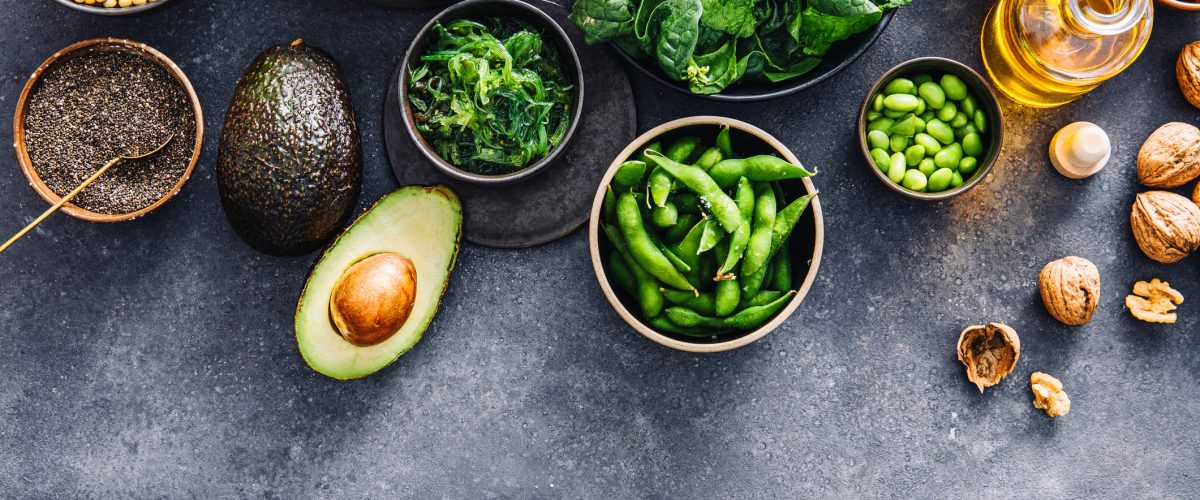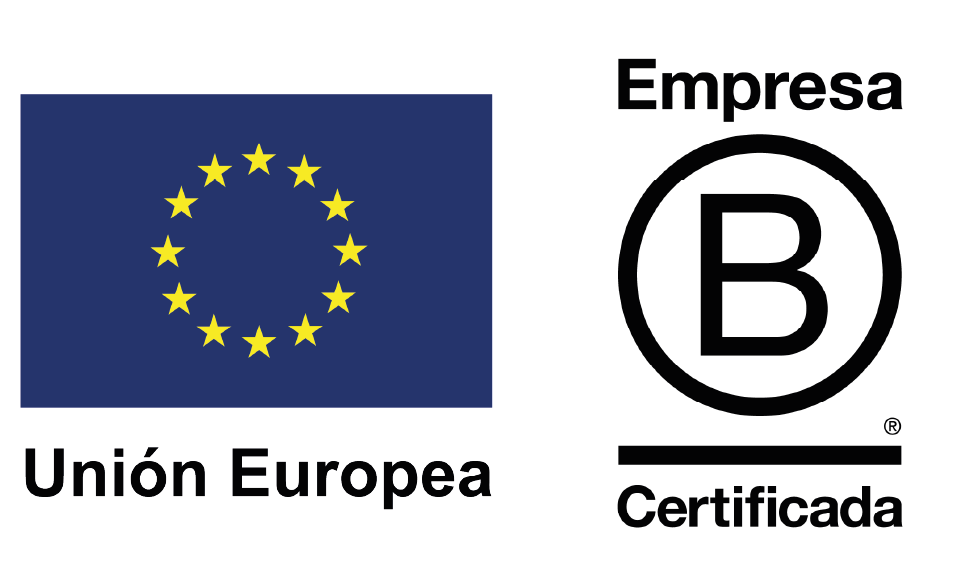Omega-3 fatty acids are a polyunsaturated fat that humans need to maintain our cardiovascular and neuronal health. They are found in the tissues of various fish, but especially in oily fish such as salmon, mackerel, trout or tuna.
Despite the fact that nowadays fat is always talked about from a negative point of view for health, the truth is that fats are essential for the proper functioning of our body. And, moreover, since our body is unable to produce them, we need to incorporate them into our diet and consume them in food or food supplements.
And now comes the important question we all ask ourselves... Can we get the same fats from exclusively vegetable sources? The short answer is a resounding yes, but first let's review some important points.
White fish VS oily fish
The main difference between white fish and oily fish is their fat content. White fish is that which has between 1 and 3% fat (such as hake, cod, sea bream, among others). On the other hand, oily fish has a much higher percentage of between 8 and 15% fat. Although oily fish contain the highest amount of omega 3 and are therefore the most beneficial for heart health, both should be present in your diet!
What are the functions of fatty acids?
When we consume fatty foods, our body must transform them into fatty acids during digestion. We can obtain fats from animal sources (such as oily fish) or from vegetable sources.
Fatty acids have multiple functions in our body and, in fact, most of them are essential for life. We highlight three main functions:
- Energy storage. During cellular respiration, our body is able to transform simple carbohydrates (sugars) into energy. On the other hand, when glucose is not available, the body turns to fatty acids as fuel for the cells. You may have heard that doing a fasting cardio workout will help you burn more fat. Now you know why!
- Structural function essential for life. The cell membrane and every cell in our body is made up of fatty acids, as well as all mucous membranes. This makes them essential for life.
- Regulatory function of several vital processes. Fatty acids are involved in several vital processes such as our anti-inflammatory response, the regulation of our body temperature or blood coagulation, among many others.

What types of fatty acids are there?
The biomolecules we call fatty acids are natural components present in oils and fats, whatever their origin. As we have already mentioned, they are crucial in the diet.
Not only do they provide us with the energy we need, but they are also responsible for the absorption of fat-soluble vitamins and carotenoids.
According to their chemical structure, we can differentiate fatty acids into 3 major groups:
- Saturated. Saturated fatty acids come mainly from animal sources, although there are some vegetable sources that also contain this type of fat. They are characterized by being solid at room temperature. These acids are usually associated with proteins and are necessary for protein function.
- Monounsaturated. Monounsaturated fatty acids are liquid at room temperature. They are present in foods such as avocado, olive oil, nuts or sunflower oil. They are very important in the structure of our body membranes, especially in the nervous system.
- Polyunsaturated (PUFAs). Similar in properties to saturated fatty acids, this group includes the famous omega-3 and omega-6. The omega-3s are the precursors for the synthesis of eicosapentaenoic acid (EPA) and docosahexaenoic acid (DHA), two components usually found in animal tissues.
Fatty acids are also classified as essential and non-essential for life. Essential fatty acids are those that the body cannot synthesize on its own, but must obtain from food. Omega-3 and omega-6 are essential fats, while omega-9 is non-essential because it can be synthesized in our body.
What is omega-3?
Omega-3 fatty acid is a polyunsaturated fat that is necessary to maintain good neuronal health. It helps us to take care of our cardiovascular health, protecting our heart from strokes.
The most common symptoms of omega-3 deficiency are dry skin, dull and brittle hair, brittle nails, fatigue, sleep and concentration problems and even joint pain.
There are about ten omega-3 fatty acids, although the 3 best known are:
- Alpha-Linolenic Acid (ALA) - prevents heart disease by helping to maintain a normal heart rhythm and helps treat arthritis, multiple sclerosis, and other chronic ailments or diseases.
- Best sources: chia seeds, flax seeds, canola oil, walnuts and hemp seeds.
- Eicosapentaenoic acid (EPA) - reduces the risk of heart attack, regulates triglyceride levels by raising DHL (good cholesterol) and reducing bad cholesterol (LDL). Especially used by athletes and perfect for muscle regeneration.
- Docosahexaenoic acid (DHA) - all omega-3s are important, but DHA is undoubtedly the one that has the greatest impact on our health. It reduces the risk of thrombosis, stabilizes blood pressure and is a perfect anti-inflammatory for treating atopic dermatitis.
Main sources of omega-3
EPA and DHA are the most important forms of omega-3 acids for the care of brain function in adults. In fact, let us remember that these are essential acids that we are unable to produce and need to obtain from external sources.
These fatty acids are found in fish and shellfish. The best source to incorporate them in our diet is from fish oil. In particular, oil from cold water oily fish such as anchovies, sardines, tuna, herring and salmon will be the best source of Omega-3 (DHA and EPA). Shellfish such as mussels, oysters and crabs are also the best source.
This raises an important question. As we all know, people's eating habits have changed in recent years. Just 50 years ago we would have been very surprised to hear that anyone could survive without eating meat or fish or dairy products, but reality has shown that this is the case.
So, knowing that the best sources of omega-3s are from animal sources, how can a person on a vegan or vegetarian diet get the essential fatty acids their body needs?
The good news is that there is another great source of omega-3 that is not as well known but is just as active as fish or seafood... And that's microalgae!
Fish oil VS algae oil
Omega-3 supplements made from fish or shellfish oils have been around for several years. There has been enough time to test and demonstrate their efficacy in humans.
And, if we tell you that there are also 100% vegan omega-3 supplements, how would you feel?
Anyone following a vegan or vegetarian diet can maintain healthy omega-3 levels. You will only need to maintain a diet rich in foods with ALA acids such as chia seeds, flax seeds, canola oil, and others. It is also advisable to supplement the diet with EPA and DHA supplements.
Algae, especially microalgae, are the main producers of PUFAs on the planet, due to their high productivity, oil content and percentage of DHA and EPA in total fatty acids. Microalgae cultivation is much more efficient, economical and simple, which confirms the advantage of algal oil consumption over animal sources. Therefore, in terms of productivity, environmental footprint and conservation of marine ecosystems, microalgae can be considered a more sustainable source of omega-3.
Is seaweed oil as effective?
A study carried out in the United Kingdom in 2005 compared omega-3 concentrations in people with completely opposite diets. The objective was to analyze the effects of eating a vegetarian or vegan diet.
The conclusions of the study were very positive, suggesting that the total elimination of animal products and foods from our diet allowed us to maintain stable fatty acid levels because the body transforms ALA acids into EPA and DHA in the case of vegetarians.
The truth is that if you do not consume supplements or sources of EPA and DHA on a regular basis, it is recommended that you ingest a higher amount of ALA (in fact, even double the amount is recommended).
In the case of people with higher needs, such as pregnant and breastfeeding women, elderly people or people with chronic diseases, a DHA and EPA supplement of about 200-300 mg per day is recommended. The recommended daily dose increases to 500-600 mg in people over 60 years of age.
Remember to always consult with your doctor or specialist before starting to take food supplements, whatever your current diet.





